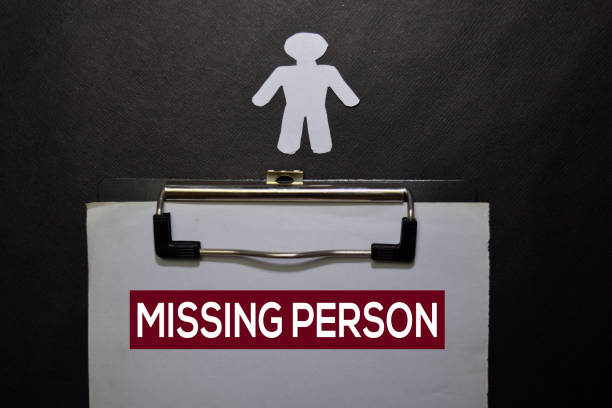


This month’s Connecticut federal grand jury indictment of Bridgeport resident Kyle Navin on federal gun charges illustrates just how heavy-handed law enforcement can be when they can’t crack a missing persons case. Kyle Navin’s parents—Easton Connecticut’s Jeffrey and Jeanette Navin—have been missing since August 4, and Connecticut State Police have taken over the investigation from the Easton Police Department, in part because the investigation of the Navins’ disappearance has involved multiple towns and jurisdictions within the State of Connecticut and elsewhere. Regardless of whether Connecticut police believe Kyle had anything to do with his parents’ disappearance, it is clear that federal law enforcement authorities are putting tremendous pressure on Kyle Navin by indicting him on serious gun charges, and even opposing bail which is arguably a serious denial of his constitutional rights.
The case begs an even more important question that is being asked among top Connecticut criminal lawyers and attorneys…specifically, when are the courts and prosecutors allowed to compromise a person’s constitutional right to the presumption of innocence in order to gain an advantage in an investigation? And when are such heavy-handed tactics such as denying bond and bail legally permissible in Connecticut, especially on gun charges that would ordinarily not warrant the denial of bail, bond or supervised release?
The best Stamford, Easton and Bridgeport Connecticut state and federal criminal lawyers and attorneys are frequently asked whether Connecticut police, prosecutors and FBI agents are permitted to search your house, read your emails, or listen in on your phone calls. Know that Connecticut search and seizure laws do not allow law enforcement to do this at their sole and absolute discretion. Instead, they must get written permission for a search warrant from a Connecticut Superior Court judge or a United States District Court judge or magistrate judge. Also know that Connecticut prosecutors, police and FBI agents can’t just walk up to a judge and have them sign a permission slip. The best Connecticut federal court lawyers can explain that a law enforcement officer must write up a search warrant application in which they must lay out specific facts that will justify “probable cause” (also known as a good faith reason based on facts and not speculation or rumor) for wanting to look at a person’s text messages, phone records, or search a person’s house.
Privacy rights in this country are sacred and a judge who is considering a Connecticut search warrant application must always balance a person’s privacy rights with law enforcement’s rights to conduct an investigation. Many times judges will deny search warrant applications, which will force police to go back to their offices and do more investigative work, and perhaps come up with better facts. Again, and as any of the best Stamford, Greenwich or Westport Connecticut search warrant criminal lawyers and attorneys know all too well, you usually cannot get a search warrant on rumors, hearsay or second or third-hand information or gossip.
Many of the top Connecticut criminal lawyers routinely get calls from clients who are frantic because police have shown up their house with a Connecticut search warrant signed by a Connecticut judge. They are looking to seize computers, take photographs and look in your drawers and closets. If they do not have an arrest warrant, then the police will ask you to stay outside of the home and will even detain you while they are searching for evidence or contraband, like drugs, guns, child pornography, or other forensic evidence related to their investigation. What’s even more concerning to the best Connecticut criminal lawyers is that police will sometimes play “good cop / bad cop.” That is, one of the officers will be aggressive and will search the house, then another will be nicer (juxtaposed against the tough officer) and will start to question you, when, in reality, they are interrogating you. You may not be advised of your Miranda rights because at that point in time, you may not be a suspect. But remember, anything you say to an officer can be used against you later on in the case so be sure to contact a top Connecticut criminal lawyer if your home, office or motor vehicle has been raided by Connecticut police. Also remember, that Connecticut police have no obligation to share any information with you. In fact, here’s something ironic–while you are not allowed to be dishonest with the police during an investigation (in and of itself, that is a separate crime), the police are allowed to be misleading in their communications with you. This is a common interrogation tactic that Connecticut law enforcement is permitted to use. For example, they can tell you that one of your buddies just “rolled” or “ratted” on you, when in fact they didn’t, just to see if you will confess to a crime. Remember, you have the right to remain silent, so exercise that right. You can always talk to the police at a later time when you are more prepared, and when you have a top Stamford, Danbury or Darien Connecticut criminal attorney lawyer by your side.